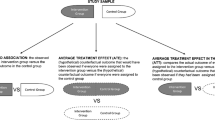Abstract
The United States has been singularly unsuccessful at controlling health care spending. During the past four decades, American policymakers and analysts have embraced an ever changing array of panaceas to control costs, including managed care, consumer-directed health care, and most recently, delivery system reform and value-based purchasing. Past panaceas have gone through a cycle of excessive hope followed by disappointment at their failure to rein in medical care spending. We argue that accountable care organizations, medical homes, and similar ideas in vogue today could repeat this pattern. We explain why the United States persistently pursues health policy fads—despite their poor record—and how the promotion of panaceas obscures critical debate about controlling health care costs. Americans spend too much time on the quest for the “holy grail”—a reform that will decisively curtail spending while simultaneously improving quality of care—and too little time learning from the experiences of others. Reliable cost control does not, contrary to conventional wisdom, require fundamental delivery system reform or an end to fee-for-service payment. It does require the U.S. to emulate the lessons of other nations that have been more successful at limiting spending through budgeting, systemwide fee schedules, and concentrated purchasing.
Similar content being viewed by others
References
Organisation for Economic Co-operation and Development (OECD). OECD Health Data 2011 - Frequently Requested Data. http://www.oecd.org/document/16/0,3343,en_2649_34631_2085200_1_1_1_1,00.html (Accessed 2/9/12).
Centers for Medicare & Medicaid Services. National Health Expenditure Projections 2010-2020. https://www.cms.gov/NationalHealthExpendData/downloads/proj2010.pdf (Accessed 2/9/12).
Vladeck BC. Managed care’s fifteen minutes of fame. J Health Polit Polic. 1999;24:1207–1211.
Oberlander J. Throwing darts: Americans’ elusive search for health care cost control. J Health Polit Polic. 2011;36:477–484.
Marmor T, Oberlander J, White J. The Obama administration’s options for health care cost control: hope versus reality. Ann Intern Med. 2009;150:485–489.
Marmor T. Fads, fallacies, and foolishness in medical care management and policy. London: World Scientific Publishing; 2009.
Marmor T. Fads, fallacies, and foolishness in medical care management and policy. London: World Scientific Publishing; 2009.
Marmor T, Oberlander J, White J. The Obama administration’s options for health care cost control: hope versus reality. Ann Intern Med. 2009;150:485–489.
Reinhardt UE. The predictable managed care kvetch on the rocky road from adolescence to adulthood. J Health Polit Polic. 1999;24:897–910.
Vladeck BC. Managed care’s fifteen minutes of fame. J Health Polit Polic. 1999;24:1207–1211.
Emanuel EJ, Liebman JB. The end of health insurance companies. New York Times Opinionator. January 30, 2012. http://opinionator.blogs.nytimes.com/2012/01/30/the-end-of-health-insurance-companies/?scp=3&sq=health%20insurance&st=cse (Accessed 2/13/12)
American College of Radiology. Table 1. Measures for Use in Establishing Quality Performance Standards that ACOs Must Meet for Shared Savings. http://www.acr.org/SecondaryMainMenuCategories/NewsPublications/FeaturedCategories/CurrentACRNews/archive/ACO-Final-Rule-Tables.aspx (Accessed 2/9/12).
Congressional Budget Office. Lessons from Medicare’s demonstration projects on disease management, care coordination, and value-based payment. Washington: Congressional Budget Office; 2012.
Hurley RE. The puzzling popularity of the PPO. Health Aff (Millwood). 2004;23:56–68.
Berenson RA, Burton RA. Accountable care organizations in medicare and the private sector: a status update. Washington, DC: Robert Wood Johnson Foundation/Urban Institute, November 2011. http://www.rwjf.org/files/research/73470.5470.aco.report.pdf (Accessed 2/13/12).
Gitterman DP, Weiner BJ, Domino ME, et al. The rise and fall of a Kaiser Permanente expansion region. Milbank Q. 2003;81:567–601.
Brown LD. Politics & health care organizations: HMOs as federal policy. Washington: Brookings Institution; 1983.
Redberg RF. Squandering Medicare’s money. New York Times. May 25, 2011.
Korenstein D, Falk R, Howell EA, et al. Overuse of health care services in the United States: an understudied problem. Arch Intern Med. 2012;172:171–178.
Iglehart JK. Medicare payment reform—proposals for paying for an SGR repeal. N Engl J Med. 2011;365:1859–1861.
Vladeck BC, Rice T. Market failure and the failure of discourse: facing up to the power of sellers. Health Aff (Millwood). 2009;28:1305–1315.
Oberlander J, White J. Public attitudes toward health care spending aren’t the problem; prices are. Health Aff (Millwood). 2009;28:1285–1293.
Anderson GF, Reinhardt UE, Hussey PS, et al. It’s the prices, stupid: why the United States is so different from other countries. Health Aff (Millwood). 2003;22(3):89–105.
Pozen A, Cutler DM. Medical spending differences in the United States and Canada: the role of prices, procedures, and administrative expenses. Inquiry. 2010;47:124–134.
Cutler DM, McClellan M, Newhouse JP. How does managed care do it? RAND J Econ. 2000;31:526–548.
Oberlander J. Throwing darts: Americans’ elusive search for health care cost control. J Health Polit Polic. 2011;36:477–484.
White J. Competing solutions: American health care proposals and international experience. Washington: Brookings Institution; 1995.
Conflict of Interest
The authors declare that they do not have a conflict of interest.
Author information
Authors and Affiliations
Corresponding author
Rights and permissions
About this article
Cite this article
Marmor, T., Oberlander, J. From HMOs to ACOs: The Quest for the Holy Grail in U.S. Health Policy. J GEN INTERN MED 27, 1215–1218 (2012). https://doi.org/10.1007/s11606-012-2024-6
Received:
Accepted:
Published:
Issue Date:
DOI: https://doi.org/10.1007/s11606-012-2024-6



